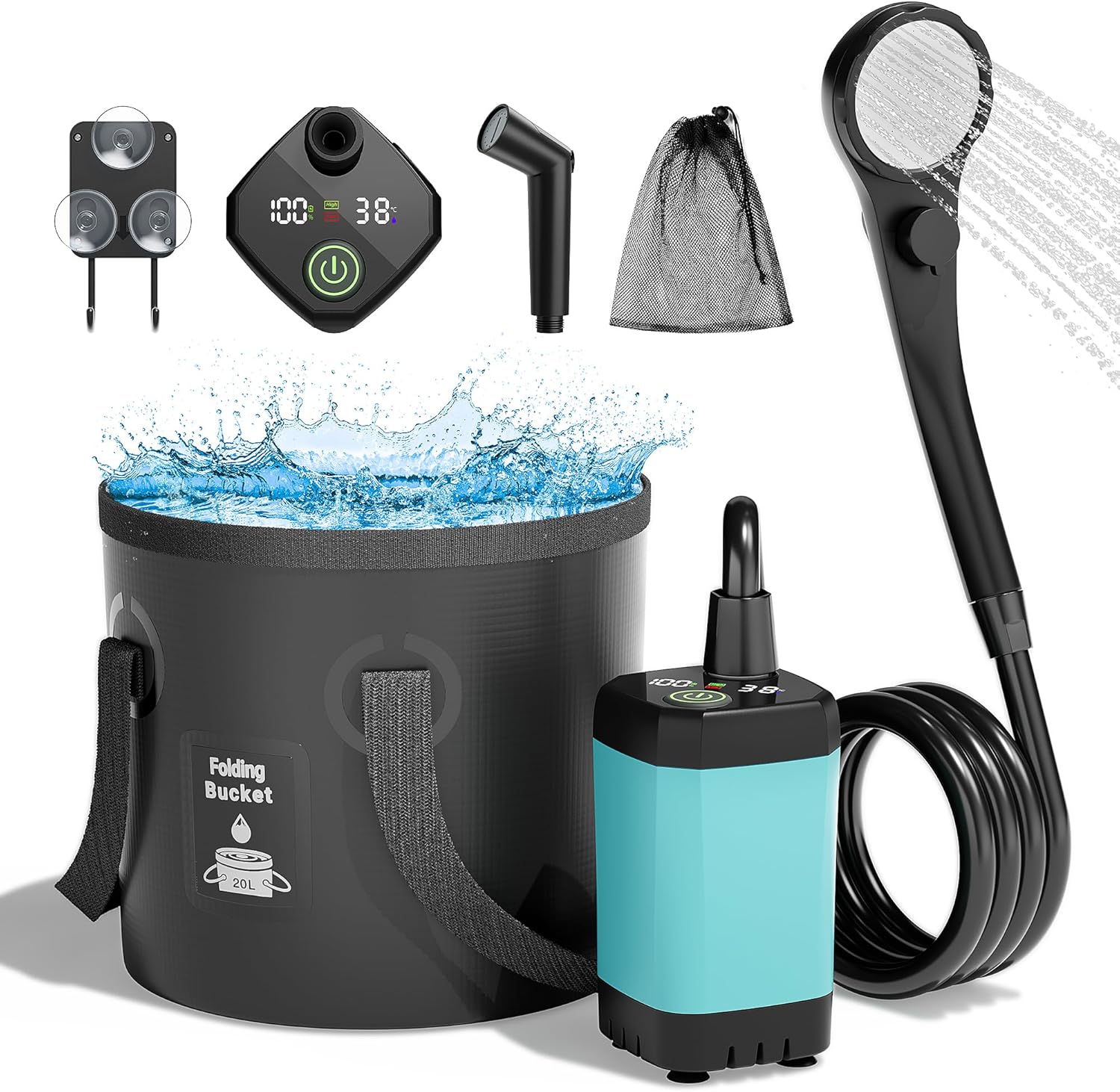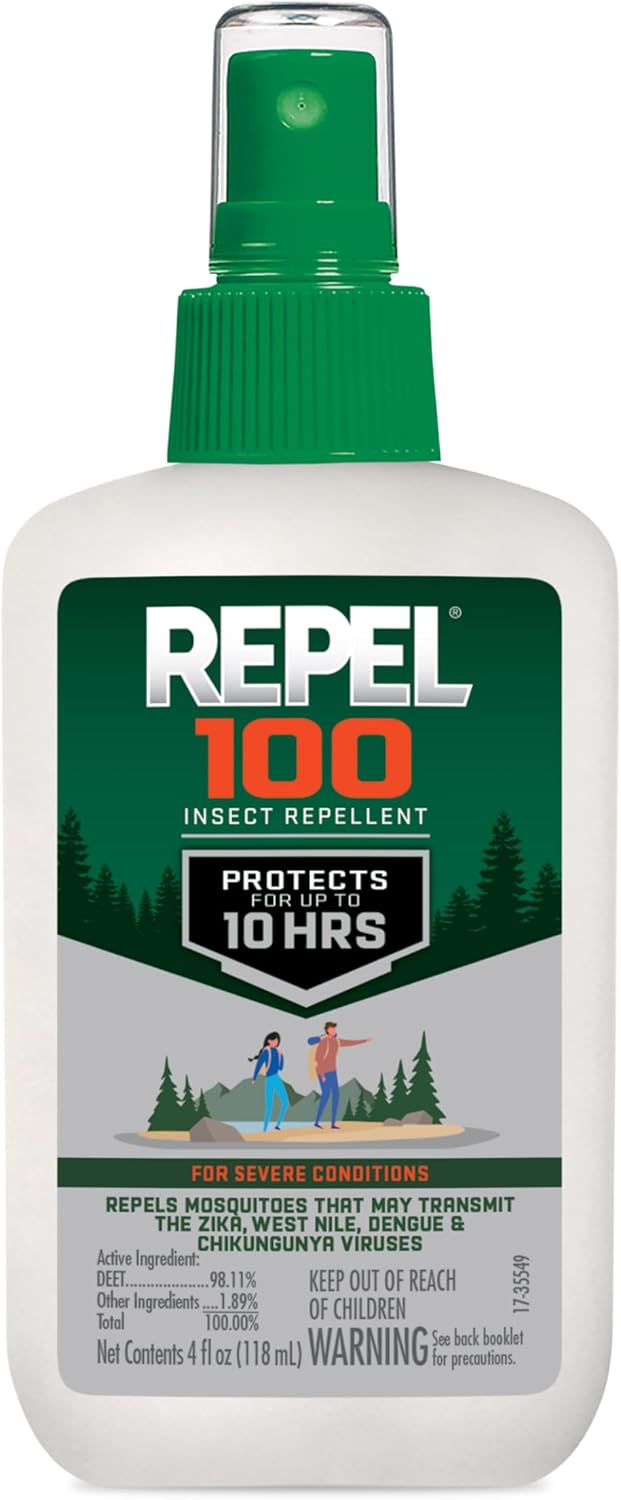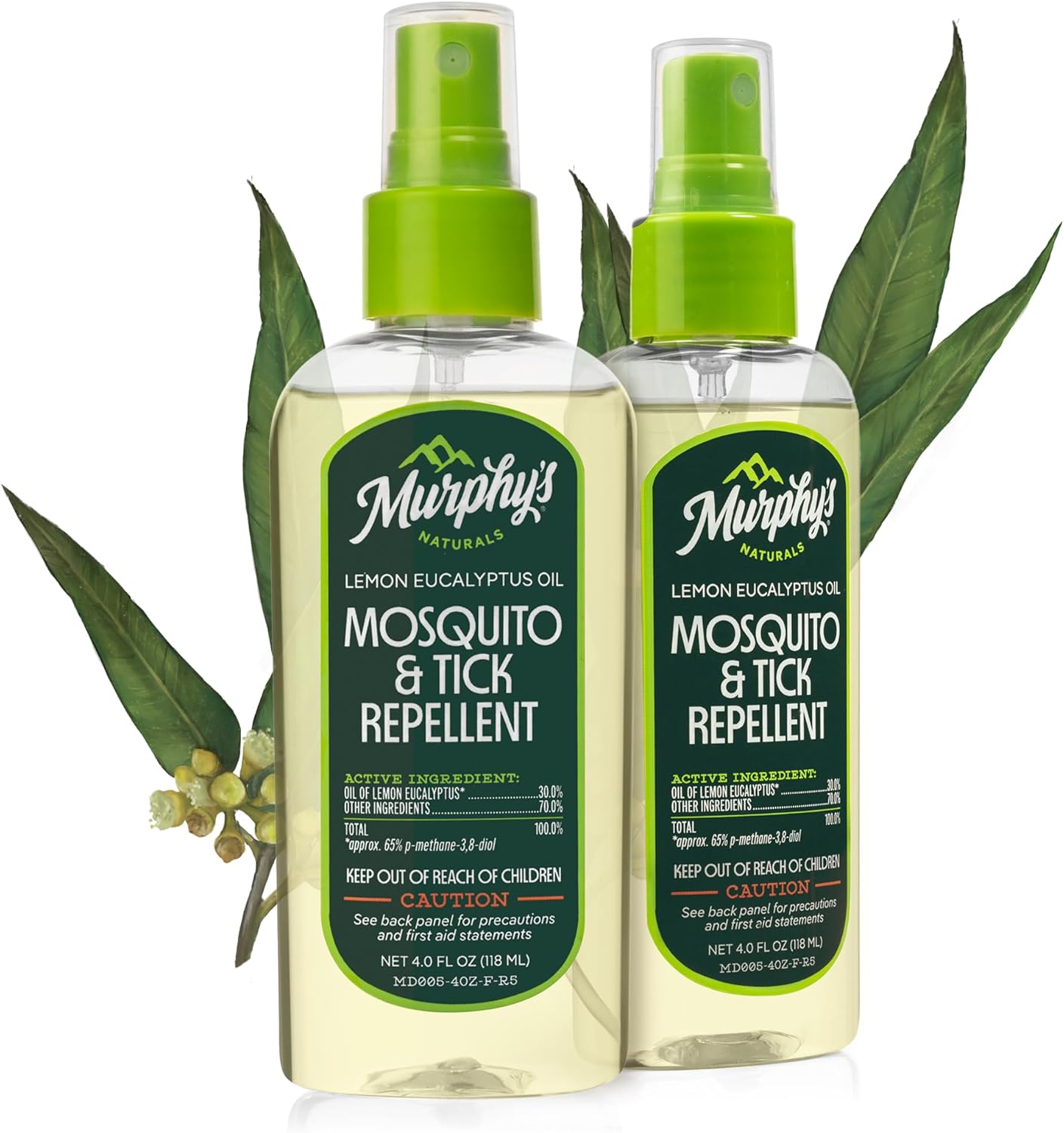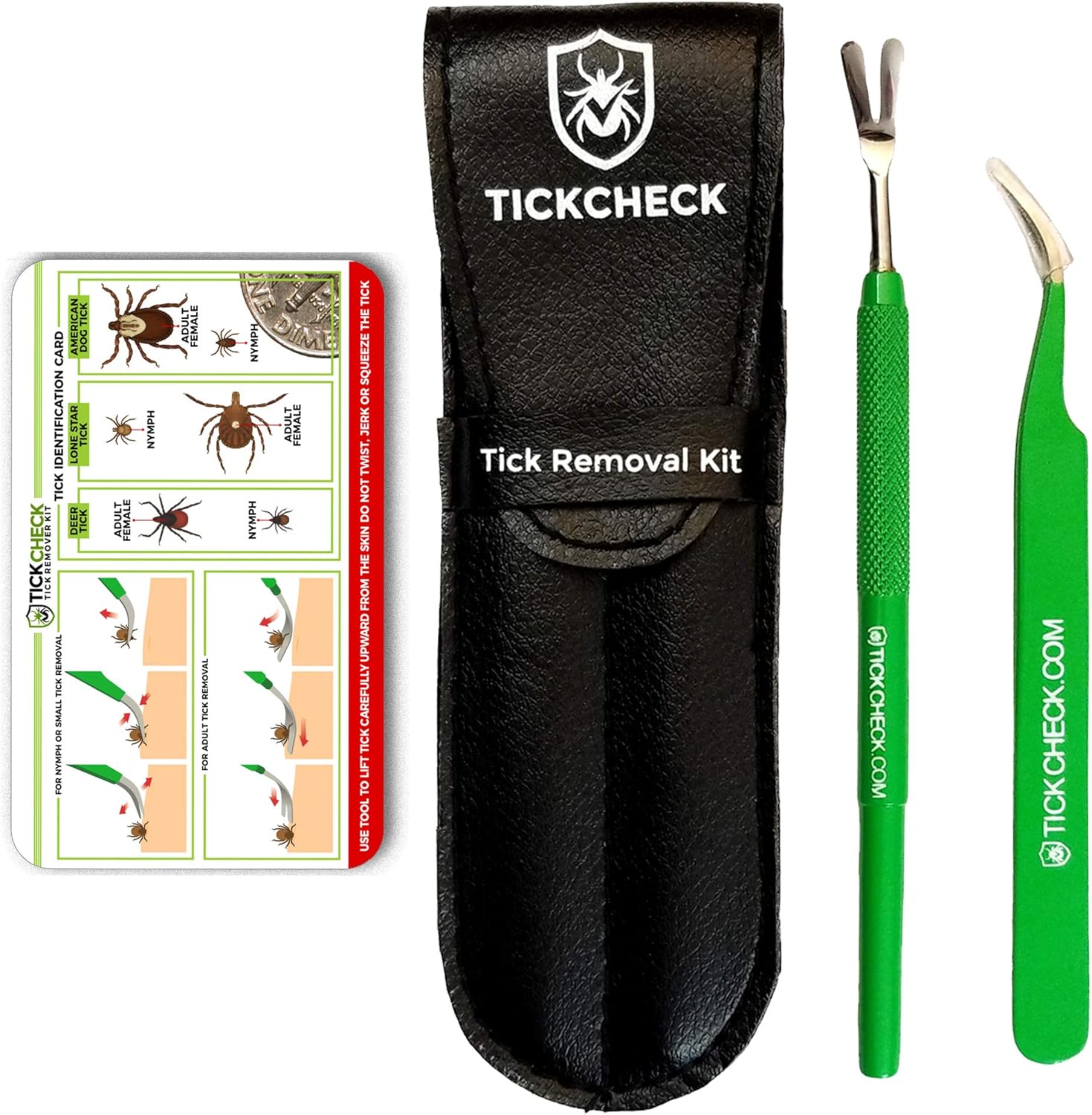Ticks on Humans
Ticks on humans are not a problem - unless the tick is infected with a disease that can be transmitted to us. Here's how to avoid, recognize and remove ticks.
Ticks tend to hang out in the areas where we like to go hiking and camping.
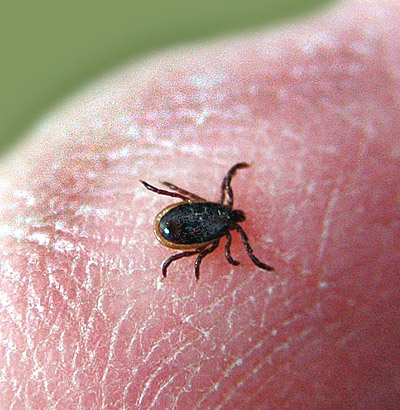 An Ixodes tick
An Ixodes tickPortable Shower for Camping
This portable rechargeable camping shower set means you can shower anywhere!
Read more at Amazon here and find the best price!!
“As an Amazon Associate, we earn from qualifying purchases.”
Ticks On Humans
The bad news
Some ticks can transmit disease. The best known of these is Lyme disease, but there are at least ten others.
The good news
Not all species of ticks are known to bite humans
There are hundreds of species of ticks in the world. Many are completely harmless.
Tick bites are usually not painful
Ticks on humans don't often hurt. You can be bitten by a tick and not even know it.
Ticks bite in order to eat - but they don't eat much.
Not all ticks carry disease-causing bacteria
Infection rates vary from place to place. In some locations, most of the ticks are infected. In others, very few carry infection.
Even if you are bitten by an infected tick, you may not become infected
Tick-borne diseases are not instantly transmitted.
Lyme disease, for instance, generally isn't passed on to a human host until the tick has been latched on to the human's skin for a day or two.
If you detect and remove the tick immediately, you have a very good chance of avoiding any symptoms.
Tick-borne diseases are treatable
Treatment is most successful when it is begun immediately.
What diseases can be transmitted by ticks?
These are the diseases that are currently known to be carried and transmitted by ticks:
- Anaplasmosis (Ehrlichiosis)
- Babesiosis
- Colorado tick fever
- Lyme disease
- Q fever
- Rickettsiosis
- Rocky Mountain Spotted Fever (RMSF)
- Southern Tick-Associated Rash Illness (STARI)
- Tickborne Relapsing Fever (TBRF)
- Tick Paralysis
- Tularemia
Since all of these are hard to diagnose and some are even harder to treat, the best strategy is to avoid being bitten by ticks in the first place.
Preventing Tick Bites
Do some research about the area where you plan to camp and hike.
If you choose an area where infected ticks are known to hang out, take the following precautions:
Cover up
Wear long sleeves and pants. Tuck your pants into your socks.
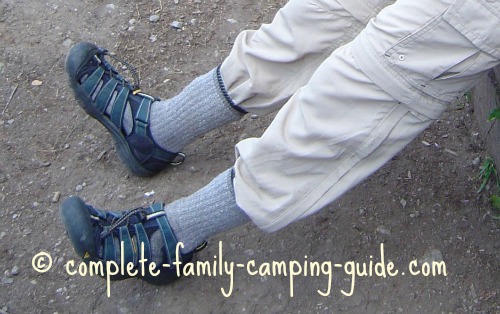
Or put rubber bands around your ankles to cinch your your pant legs in tight. You might want to go even further and fasten your pants to your socks with duct tape.
Tuck your shirt into your pants.
Wear a hat with an attached bandanna that covers your neck.

Wear light colored clothing
This won't deter ticks, but it will make it easier for you to see and remove them.
Avoid underbrush and long grass
This is where ticks typically hang out. When hiking, stay to the middle of the trail.

Use insect repellent
Health officials recommend that you use an insect repellent containing DEET to repel ticks.
CLICK HERE to purchase a repellent with DEET at a good price.
You'll have to decide whether the risks of using DEET outweigh the risks of being bitten by a tick.
If you do use DEET, be sure to follow the directions on the package. Don't get the repellent in your eyes, nose or mouth.
There are DEET-free products on the market that you can purchase.
Murphy's Naturals Mosquito & Tick Bug Repellent Spray uses natural oil of lemon eucalyptus for long-lasting mosquito and tick protection. CLICK HERE to purchase.
Wear bug protection clothing
These outfits are light and comfortable and provide a barrier to keep ticks away. They also deter bees, wasps and mosquitoes!

Do regular tick checks
Even if you take every precaution, a tick may still find you and attach itself to you.
Ticks on humans tend to crawl around for awhile before they settle down for a snack, so if you check regularly, you have a good chance of finding and removing them before they start munching you.
When should I check?
If you are out for the whole day, check numerous times during the day - every time you sit down for a rest or a snack.
How do I check?
Check all exposed skin. Look especially closely at these areas of the body:
- on the back of the neck
- along the scalp line
- in the groin
- at your sock line
- at your waistband line
- in folds of skin
A tick that has had a good feed of your blood will be easiest to find. It will be engorged, blue-gray in color, and as large as a watermelon seed.
A tick that hasn't begun to feed may be as small as a sesame seed - or even smaller!
If you find one tick, don't stop looking! There may be more.
If you find a tick, you may be tempted to grab it and tear it off. Don't! Read this to learn how to remove ticks on humans safely and effectively.
CLICK HERE for more information on a great tick removal kit and to purchase on Amazon at a good price.
Tick Bite Symptoms
If you are bitten by a tick that doesn't carry disease, you will probably have no symptoms at all. In fact, you probably won't feel the bite and might never know that you have been bitten!
Tick Bite Disease Symptoms
Ticks on humans cause symptoms only if the ticks are infected. If the tick was infected with the bacteria that causes Lyme disease, for example, you may notice the following symptoms:
Within days or weeks
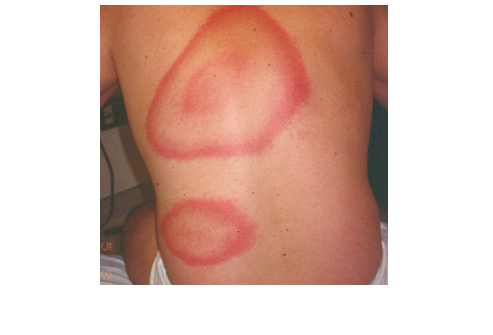 Bullseye lesions of Lyme Disease
Bullseye lesions of Lyme Disease- a "bulls-eye" shaped red rash
- fatigue
- fever
- headache
- weakness
- joint and muscle pain
- swollen lymph nodes
You'll notice that this looks very much like a list of flu symptoms. You might just assume that you have the flu.
If you have been in an area where Lyme disease is common, see your doctor promptly. Lyme disease is very treatable in the early stages.
Even if you don't seek treatment, the rash will go away in about a month, giving you the false sense that all is well - but the bacteria is still spreading through the body.
Weeks or months later
- arthritis
- numbness
- a stiff neck
- memory loss
- problems with vision
- hearing problems
- high fever
- irregular or rapid heartbeat
The bottom line
Ticks on humans can cause serious problems. By knowing how to avoid, detect and remove ticks, you can lessen your chances of contracting a tick-borne disease.
Now that you know how to deal with ticks on humans, click here to learn more basic first aid instructions.
Are you planning a camping trip? Be sure to visit the Camping Family home page for lots of helpful information.
Most Popular
Product of the Month
Iwatani Camp Stove
The perfect portable cooktop!
CLICK HERE for more information and best price
Recent Articles
-
Folding Table And Chair Sets For Camping - Which Will Suit You Best?
Apr 24, 25 07:32 AM
Find out which folding table and chair sets for camping will be best for you! What's important, what to look for, and what to avoid. -
Youth Sleeping Bags: Find The Best Types of Children's Sleeping Bags
Apr 23, 25 11:43 AM
Choose good quality youth sleeping bags for your children using this handy guide - and enjoy a great night's sleep for the whole family! -
Washer Toss Game: Rules For A Fun Game To Play While Camping
Apr 23, 25 10:54 AM
Have fun playing the washer toss game with your family next time you go camping! It's easy to learn, portable, and fun for all ages.
